- Home
- Seanan McGuire
Submerged Page 27
Submerged Read online
Page 27
He nodded, knowing she was right.
He glanced up at the surface of the water, which rippled with waves, and listened to the plop of falling nuts, the groan of straining roots, the crunching of pacu.
Aracai considered swimming home to the sea, giving up this sad quest. He could leave the bomb in the mud. He looked up. Swarms of dragonflies were hovering above the lagoon—electric blue, fiery red, leafy green.
Dulce grabbed his bicep and peered into his face. “Promise you will go on,” she said. “Do it for your daughter, for all the mer yet to be born.”
Aracai imagined their child again, that sad thing thrashing about after birth as she drowned. He imagined her growing cold and stiff, her blue eyes turning to white. She’d died without a name.
He nodded.
He did not want to kill. He had argued for and against it in his mind time and time again, until nothing made sense anymore. His wife wanted him to fight, as had Escalas. That was all that mattered.
Aracai kissed Dulce goodbye, hugged her tightly, and she swam back, as if the idea of swimming downstream invigorated her.
She rose near the surface so that the sun caught her hair. But there was a flash, a violent disturbance.
Dulce gave a blood-curdling shriek and jerked hard, swimming first to the left in a wide arc, then diving, but there was a metal rod stuck in her back, with a heavy cord tied to it. No matter how hard she swam, the cord pulled her upward.
Terror and grief coursed through Aracai. Time slowed. He realized that his wife had been struck by a spear-fisherman, and the harpoon had taken her in the back. She burst up toward the surface, becoming airborne, and he heard a man shout in delight, “Ela é uma grande!” She’s a big one!
He dropped the bomb and swam toward her fast. The harpoon had hit near her right lung. He doubted she could survive long.
Blood stained the water. Aracai could taste it. The giant pacu suddenly seemed to spasm, instantly turning their interest from nuts to flesh. They sped up and swam toward Dulce, who spun onto her back and grabbed the line that held the harpoon. Desperately, she jerked. “Help!” she sang.
Aracai raced to her, realizing that this must be some mistake. He’d seen monster fish in other lagoons, and though no humans had been fishing near the poison water, up here where things were more pristine, someone must have mistaken his wife for a meal.
The spear fisherman was pulling the line, trying to drag Dulce to shore. Aracai raced up and grabbed the line, tugged violently, and felt the human go off balance. A man cried out in fear.
Aracai rose to the surface, whistled a shrill warning. He could not speak the human tongue, but he could make his anger known.
He peered up into a sandbox palm, where three young men hunted from a tree fort. One held the fishing line. Another held a spear gun. A third bore an ancient rifle.
“Há outro!” the spearman called. He raised his spear gun and fired hastily. The bolt tore past Aracai’s head.
“You’ve made a mistake,” Aracai sang in his own tongue.
But the gunman peered at him with deadly intent, an eager smile playing over his face. He raised his rifle and fired. Heat tore through Aracai’s shoulder and he dove for cover, down into the inky darkness beneath the tree roots.
A second shot burst through the water and at first Aracai thought it was aimed at him, but the humans had dragged his wife close to the surface and that bullet took her in the back.
Instantly, she went limp, arms falling wide.
The pacu lunged at her and nipped her flesh.
The humans yanked her into the air. As Aracai gazed up, a pacu hit him hard in the back, testing for a response.
Dulce was hauled out of the water and he could not get to her. He could not even retrieve her body. So he turned and lunged away as fast as he could and grabbed the bomb.
He wanted to rescue his wife, worried that she was still alive, that the men were torturing her. He swam to some ferns that hung over the water and rose, using them for cover.
The three men were young, hardly more than boys. They had pulled Dulce up onto their hunting platform and were admiring her, as if she were a prize catch.
One knelt and fondled her breast while another laughed. The gunman peered into the water, still hunting.
Dulce did not move. She was as dead as their daughter.
Aracai called out in grief, an involuntary wail that echoed over the water. The young man with the spear gun called, “Get out! This is our river.”
Feral humans. Aracai had always used the term to refer to those without genetic upgrades. Now he saw the truth.
He dove, swimming near the bottom as fast as he could. He realized that he might not have much time. His wound was not bad, but the bleeding would draw predators. So he swam to the Rio Negro and became lost in its black waters.
Now the poisons and pollution worked in his favor. He did not have to face piranhas as he swam. The river was black with soot, as if ash had mixed into the water, and the riverbed was a wasteland.
So he swam, wasting himself, surging upstream, mind numb.
Until the mindlink finally meshed with the nerves in his spinal column and suddenly he understood more than he had thought possible.
He knew the names of the trees that he had seen, the weeds and the frogs. The fish inside his penis was called a candiru, and if he had known of its existence, he could have tied a band around his organ to protect it.
He realized that the bomb could not be nuclear. He had been holding it close and no boils had formed from radiation. So he considered Escalas’s last words. Always the old mer had spoken with double entendre, always hiding his meaning, trying to force Aracai to think.
The neogods would never have leant their efforts to killing others.
But the old mer had begged a boon from them. A bomb. A heavy bomb, heavier than gold. As he guessed at the bomb’s intent, his energy redoubled, and he swam forward with excitement, brimming with wonder.
Escalas had urged him to take responsibility for his own evolution.
So he asked the Heavenly Host: If a bomb were packed with retroviruses, how heavy would it be?
The AIs answered: The viruses would be pure DNA, and have no cell membranes or empty plasma around them. They would weigh more than a kilo per cubic centimeter.
Heavier than gold.
I am carrying a viral weapon, he realized. But what will it do?
He knew Escalas. The old mer had not had a cruel bone in his body. He had always urged Aracai to ponder. Even his last gift had been his greatest possession, the mindlink.
But viruses could be more than weapons. A retrovirus could insert itself among a person’s DNA to repair damage, or even to upgrade a person.
Viruses to make us wise, he thought. That is what Escalas would have wanted. And through his mindlink he asked the AIs of Heavenly Host if retroviruses might be used to do that. The answers amazed him. There were viruses that could quadruple the number of neural connections in the human brain, while others could increase the numbers of neurons alone. Those two viruses in and of themselves could quadruple a person’s thinking power.
But there were more, the AIs showed him, viruses that could make a man live longer, eradicate diseases, love one another more. Over a hundred thousand upgrades had been developed, and dozens more were coming every day.
As Aracai studied the lists, he saw that Escalas had tagged thousands of such viruses.
Escalas would have wanted all of them. Aracai thought he understood. The bomb would rid the world of feral humans once and for all.
But how valuable would such upgrades be? Human doctors charged huge sums to administer such things. After all, any upgrade could give a man huge advantages.
To his surprise, the AIs already knew: The bomb you carry is probably worth more than the sum total of all the earth’s wealth for the next thousand years.
Aracai gasped at the thought and wondered what the old mer could have traded for such a boon. But ther
e was nothing in this world that he could have given.
His life, Aracai suspected.
Had the bargain amused the neogods? One amoeba trading its life to help all others?
Perhaps it had amused them. Or perhaps they had recognized the nobility behind the request.
It all made a bit of sense to Aracai now. The GPS on the bomb, its red light. It could only be set off in one location, at Dos Brujas.
But why? He asked the Heavenly Host, but it went silent. Even it did not know all of the answers.
His blood did not call predators, but as Aracai swam he grew weaker. Many times he considered turning around, heading out to sea.
But it is too late to go home, he realized. He was too weak to swim that far. The ache in his muscles multiplied.
I will die no matter what I do.
So Aracai chose to die for a cause, just as a billion other martyrs had chosen to die for their causes over the millennia.
Huzzah! Huzzah for the martyrs, he thought.
If he had lived, the old mer would have revealed his plans to Aracai, he believed. He might even have begged the younger mers to help him. But Escalas had failed.
Eventually Aracai found Dos Brujas on a night where the full moon was setting in the west, glistening on the water and tinged red from the smoke of distant fires. He spotted its dark tower rising from the black waters. A red light at its top was probably meant to warn away aircraft, but it seemed to glare out over the river like a red eye.
There, on either bank, were the factories with their sewage pipes spewing poison.
Aracai felt beyond weary, numb beyond thinking. Adrenaline seemed to carry him this far, but now it was gone and he fumbled to fulfill his mission. He lay gasping, gills flaring, and rose to the surface, floating on his stomach.
Aracai found the button, saw that it now emitted a soft green light. He pressed it for what seemed minutes.
The disk twisted in his hand, began spinning rapidly in the water, then rose above the surface, whirling faster and faster until it began to rise into the air.
He watched it ascend into the night sky. Tiny white LEDs on its bottom became a blurring ring, so that as it rose, it brightened and seemed to take its place among the blazing stars.
Aracai feared a flash of light more blinding than the midday sun and a ball of fire to end his life, but instead, at perhaps three thousand feet, the bomb suddenly exploded with a shrieking whistle, sending its contents spinning and streaming in every direction.
It looked as if a watery shield suddenly spread over the city—as if a mist raced for miles in every direction. The viruses spread wide, a plague of wisdom.
He wondered how many people they would infect, and Heavenly Host answered: The infection will start here, among the poorest people of South America, and then the viruses will be carried by the winds across Africa and India, until the plagues encompass the earth, putting an end to stupidity and avarice, waging war against war itself.
There was no thunder, no rumbling of the earth. In wonder Aracai faded from consciousness, now sure of what he had unleashed. Change, he thought. Change for the better. A new world, where men can take responsibility for their own evolution. I am so lucky to have witnessed this. Our children will inherit the stars.
For a while he floated downstream, gasping, floundering. His eyes dimmed, he struggled to breathe, soot and poisons choking him.
A buzz rang in his ears, and suddenly he heard old Escalas’ voice one last time: Come swim with me.
He looked up and saw the Milky Way, stars shining like a river of light in the heavens. Escalas was swimming down toward him, with Dulce smiling at his side, and holding her hand was their tiny daughter.
He reached up and, with a firm grip around his wrist, Dulce pulled him free of his wasted flesh.
THE BYSSUS WOMAN
Sara M. Harvey
When I was a child I knew a myth, a truth, and a secret.
It was lore in our small fishing village that if a woman lost her husband, or chose not to take one, that she had been chosen by the gods to take up spinning and weaving. She would submit herself to the village council and learn to dive, to hold her breath for long minutes at a time. For what we spun wasn’t wool or flax or silk, but something far finer and far stranger.
If that woman could not pass her trials, and she lived, she and her children would be asked to leave the village. It was said that anyone who stepped beyond the border would lose their memory of this place and its treasure. When my father died, I wished desperately that my mother would pass so that we might stay. Because I wanted nothing more than to be a spinner, a spinster, myself. Plus, this was the only home I had ever known, a place that knew me and loved me, and I didn’t think that would be as easy to come by in another village.
So that was our myth, the story of the woman chosen from grief and loneliness to serve the gods with the secret knowledge that lived here and only here, erased from the minds of any who left us.
Here was the truth: we wove a sheer cloth that looked like gold, and although it was rare, priceless, we could not take money for it. We traded it, instead, for protection and alliances and the continued existence of our village. Those that wanted the cloth were powerful: kings and bishops of the faraway church in which we did not believe, foreign men and women who traveled long miles to visit us and see this glorious fabric for themselves. Although enterprising folk had tried, many times, to set up proper mills and create an industry of making the stuff, it never worked out for them. The process was long and painstaking, the results could be inconsistent, and the resources were fickle and sensitive to seasonal change and the demands of over-harvesting.
Clams and mussels lived in the grottoes and reefs just offshore. These creatures produced a slick, milky mucous that, once collected and treated in a series of seaweed and herb baths, turned a luxurious yellow-gold that shone in the sunlight and felt as fine and smooth as silk. From antiquity, it had been named byssus. And while the mussels and process were well-known to us villagers, it was a secret to everyone else. They only knew that it came from the sea, somehow. They believed it was magic. And we let them. Because it allowed us to live our lives fishing and farming and spinning and never worrying about war or missionaries or famine. We lived simply, occasionally indulging in a particularly lavish tribute, but overall it was quiet and sheltered and that is all I ever wished for.
My mother, as it turned out, passed her trials with ease. All the people of my village were good swimmers, but I suspected that she maybe had dreams of being a byssus-weaver, too, because she often practiced holding her breath and diving down deep beneath the waves while she and I waited for my father to return with his catch. And she let me practice, too.
Still, when she donned her blue wool shift—with the neckline trimmed with byssus scraps that we refused to let go to waste—and stood before the council, I paced nervously, chewing my fingernails until I had bitten them to the quick. And, as we all walked down to the shore, I moved on to my cuticles and nibbled them until they bled. They stung like angry jellyfish when I hugged her as she rose from the foamy seawater, triumphantly holding out her basket of slime and seaweed.
I helped her prepare the ancient recipes to cook that slime into gold. And when she wove her first square of holy cloth, the eldest matriarch declared that it was the finest she had ever seen. And so my mother’s future was secured. And so I had a chance, as fine as a byssus strand, but byssus was strong for all that it seemed impossibly delicate.
She moved in with the rest of the weavers and I was left alone. Not alone, of course, as this was a village of uncles and aunts and cousins of various degrees. I was too old for children’s games, but had no interest in the tame and clumsy dalliances of my peers. Although I had spent my life alone and aloof, they invited me anyway. And more than once, I longed to take part, even if just to thank them for it, but my heart was never in it, my body never hungry for it. All I wanted was the cool embrace of the sea and the feeling of th
e air within my lungs pushing and pressing outward on my ribs and my throat and the sweet sensation of breaking the water’s surface and letting go of that rush of breath and sucking in a new one as fast as I could while my heart hammered in my ears. That was my ecstasy.
I knew the marbling of each shell and the shape of each stone in the deep bay. I never once saw the waving strands of mucus, waiting for the cut of the knife. No matter the season, or time of day. Perhaps there was magic afoot, after all. I believed our stories as much as I believed any myth, for these were the things the village was made of, what I was made of, but I did not take them to heart as many others did. But still, the women brought the byssus to the shore and they wove the cloth and traded it for our livelihoods. That much was undeniably real.
In the absence of my mother, my aunt came to visit me. She was a stout woman, my mother’s eldest sister. She had deep lines on her face from scowling, but she was always kind to me.
As my body aged into adulthood, the changes that came with it alarmed and saddened me. My voice was not my own, my face grew unrecognizable. My aunt made me broth to soothe my throat and teas to soften the wiry hairs that began to grow in increasing numbers. She showed me how she plucked her own chin free of black whiskers, a thing most of the women in our village faced. She told me that if I could catch the root when I did it, each time the hair would grow back thinner and softer until it stopped coming at all. It would take time, she told me, and would be quite painful, and when I got old they might come back anew. She was bitter that after assiduously plucking her lip and chin her whole life, she was re-growing a veritable garden of coarse, dark hairs.
“But you are different,” she said to me. “I can only advise, but I cannot predict.”
The broths and teas helped. But I still spent a lot of time plucking and relearning how to speak.
The day my mother returned to our home, it rained. She came in without knocking, but hesitated in the doorway, as if unsure how to proceed.

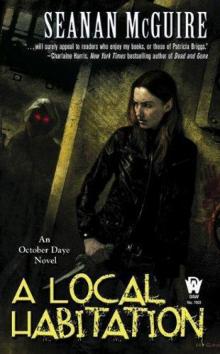 A Local Habitation
A Local Habitation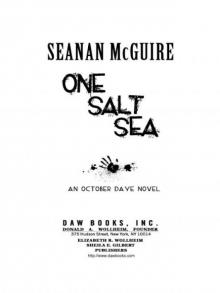 One Salt Sea
One Salt Sea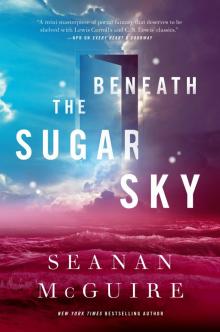 Beneath the Sugar Sky
Beneath the Sugar Sky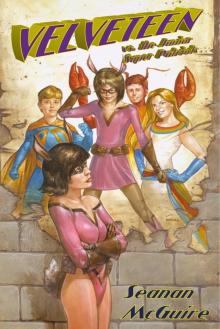 Velveteen vs. The Junior Super Patriots
Velveteen vs. The Junior Super Patriots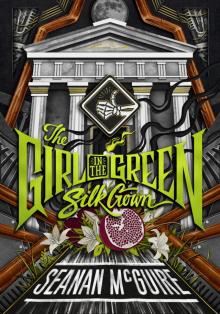 The Girl in the Green Silk Gown
The Girl in the Green Silk Gown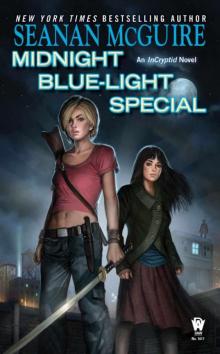 Midnight Blue-Light Special
Midnight Blue-Light Special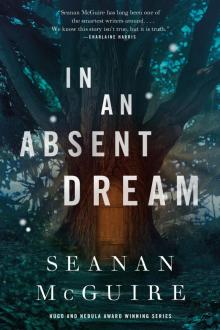 In an Absent Dream
In an Absent Dream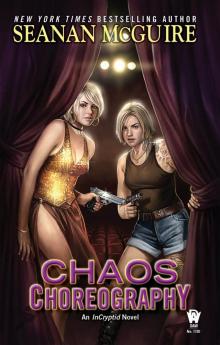 Chaos Choreography
Chaos Choreography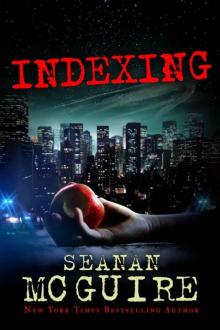 Indexing
Indexing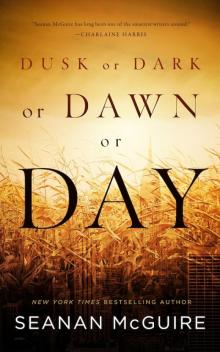 Dusk or Dark or Dawn or Day
Dusk or Dark or Dawn or Day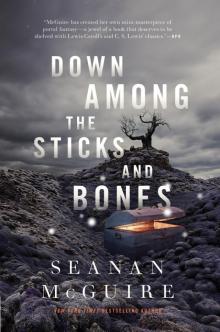 Down Among the Sticks and Bones
Down Among the Sticks and Bones The Razor's Edge
The Razor's Edge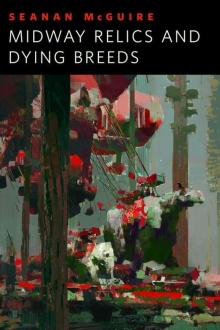 Midway Relics and Dying Breeds
Midway Relics and Dying Breeds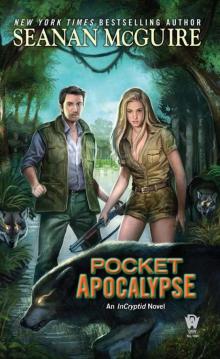 Pocket Apocalypse
Pocket Apocalypse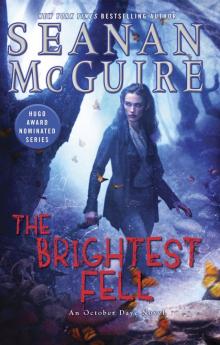 The Brightest Fell
The Brightest Fell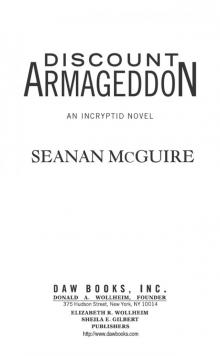 Discount Armageddon
Discount Armageddon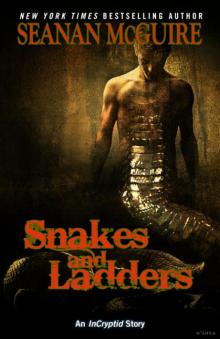 Snakes and Ladders
Snakes and Ladders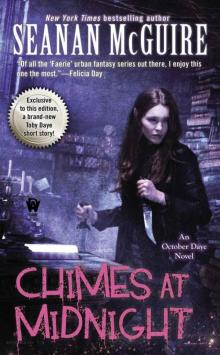 Chimes at Midnight
Chimes at Midnight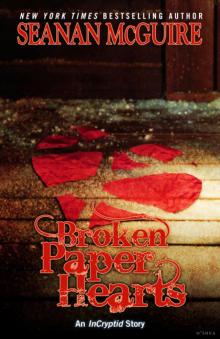 Broken Paper Hearts
Broken Paper Hearts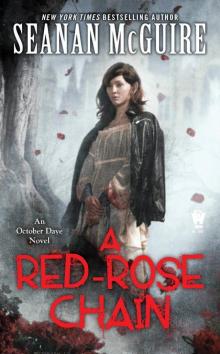 A Red-Rose Chain
A Red-Rose Chain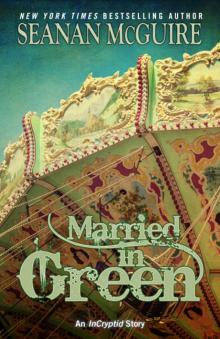 Married in Green
Married in Green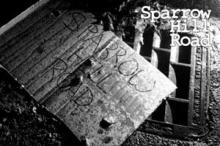 Sparrow Hill Road 2010 By Seanan
Sparrow Hill Road 2010 By Seanan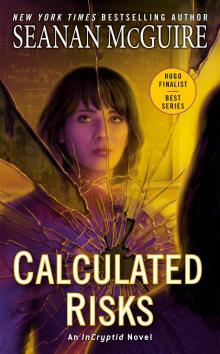 Calculated Risks
Calculated Risks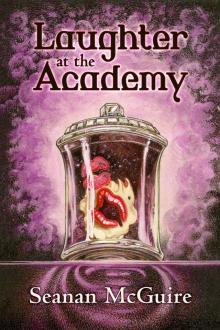 Laughter at the Academy
Laughter at the Academy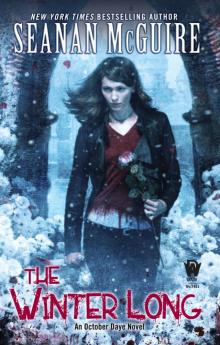 The Winter Long
The Winter Long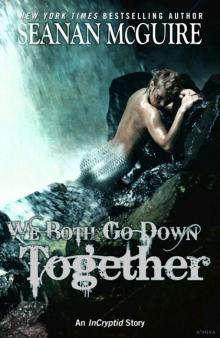 We Both Go Down Together
We Both Go Down Together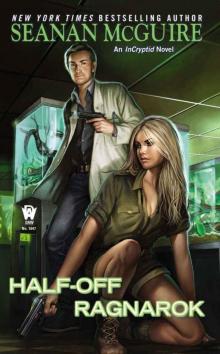 Half-Off Ragnarok
Half-Off Ragnarok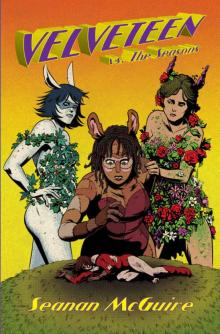 Velveteen vs. The Seasons
Velveteen vs. The Seasons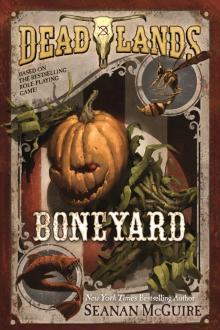 Boneyard
Boneyard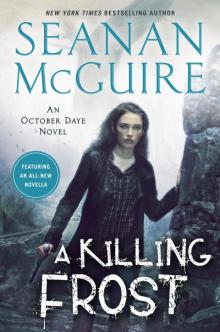 A Killing Frost
A Killing Frost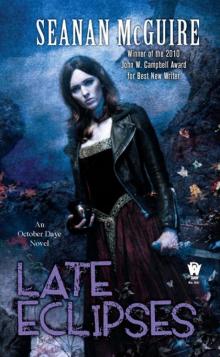 Late Eclipses
Late Eclipses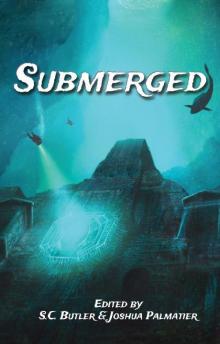 Submerged
Submerged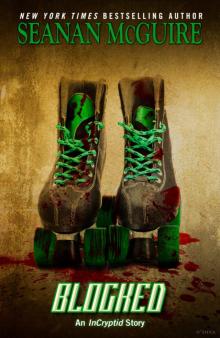 Blocked
Blocked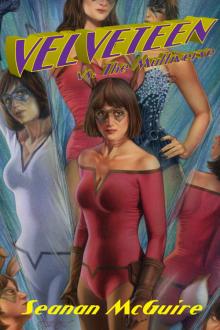 Velveteen vs. The Multiverse
Velveteen vs. The Multiverse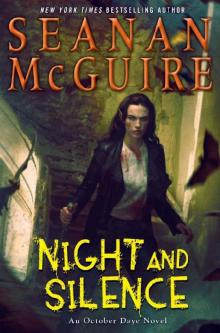 Night and Silence
Night and Silence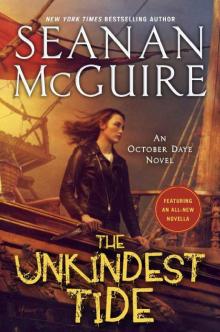 The Unkindest Tide (October Daye)
The Unkindest Tide (October Daye)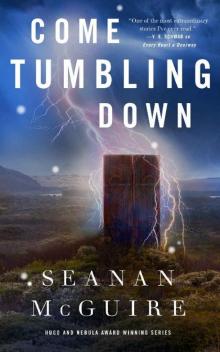 Come Tumbling Down (Wayward Children)
Come Tumbling Down (Wayward Children)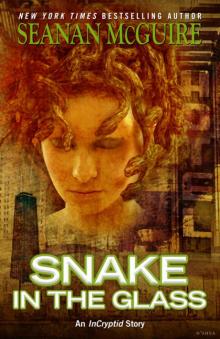 Snake in the Glass
Snake in the Glass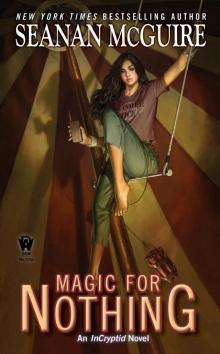 Magic for Nothing
Magic for Nothing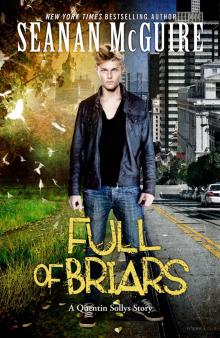 Full of Briars
Full of Briars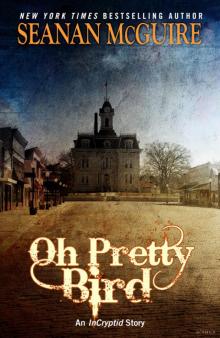 Oh Pretty Bird
Oh Pretty Bird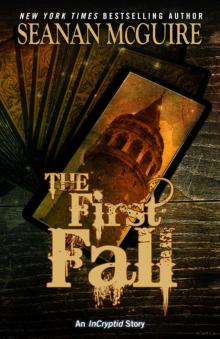 The First Fall
The First Fall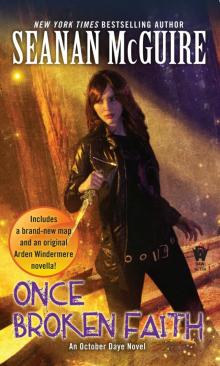 Once Broken Faith
Once Broken Faith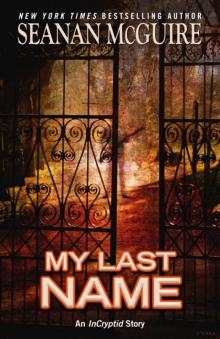 My Last Name
My Last Name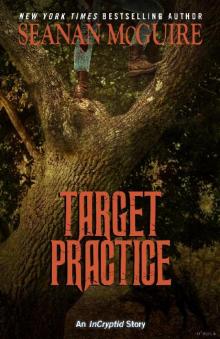 Target Practice
Target Practice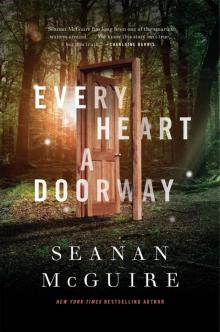 Wayward Children 01 - Every Heart a Doorway
Wayward Children 01 - Every Heart a Doorway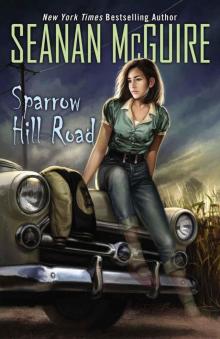 Sparrow Hill Road
Sparrow Hill Road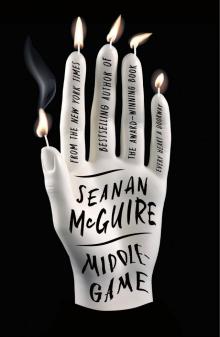 Middlegame
Middlegame Juice Like Wounds
Juice Like Wounds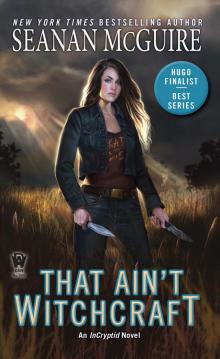 That Ain't Witchcraft
That Ain't Witchcraft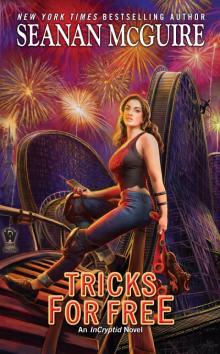 Tricks for Free
Tricks for Free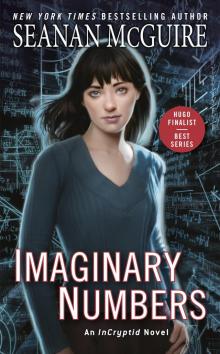 Imaginary Numbers
Imaginary Numbers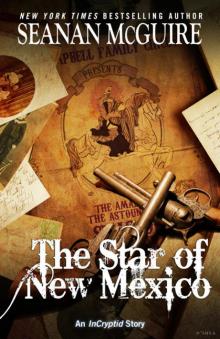 The Star of New Mexico
The Star of New Mexico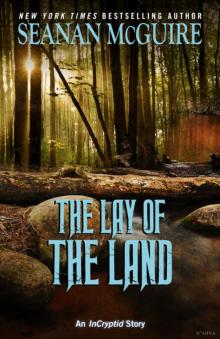 Lay of the Land
Lay of the Land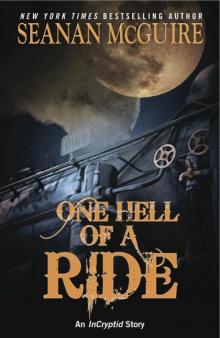 One Hell of a Ride
One Hell of a Ride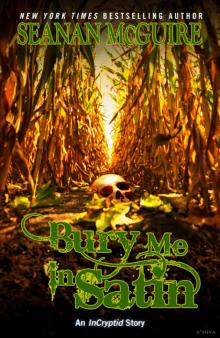 Bury Me in Satin
Bury Me in Satin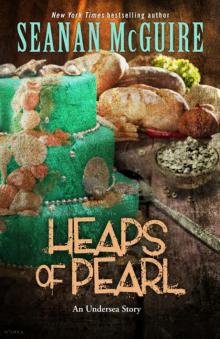 Heaps of Pearl
Heaps of Pearl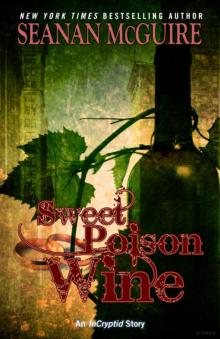 Sweet Poison Wine
Sweet Poison Wine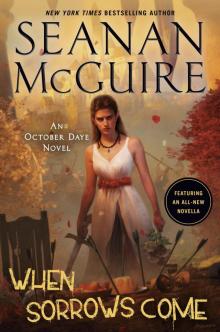 When Sorrows Come
When Sorrows Come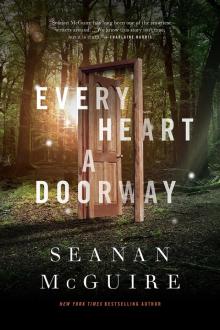 Every Heart a Doorway
Every Heart a Doorway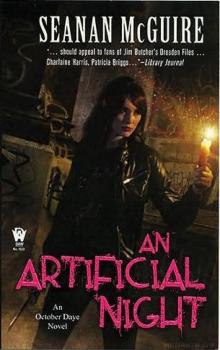 An Artificial Night - BK 3
An Artificial Night - BK 3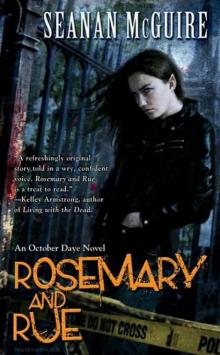 Rosemary and Rue
Rosemary and Rue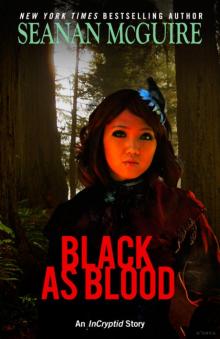 Black as Blood
Black as Blood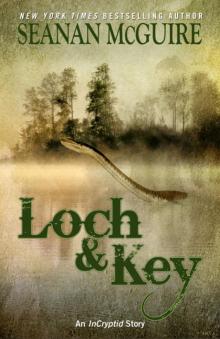 Loch and Key
Loch and Key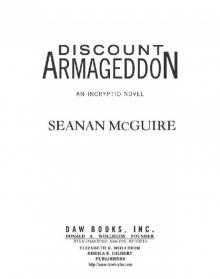 Discount Armageddon: An Incryptid Novel
Discount Armageddon: An Incryptid Novel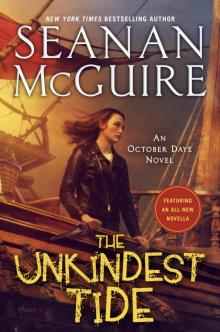 The Unkindest Tide
The Unkindest Tide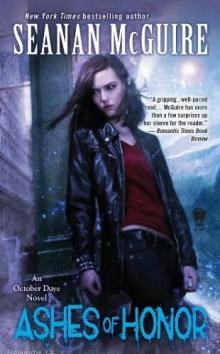 Ashes of Honor od-6
Ashes of Honor od-6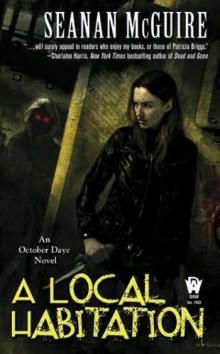 A Local Habitation od-2
A Local Habitation od-2 Waking Up in Vegas
Waking Up in Vegas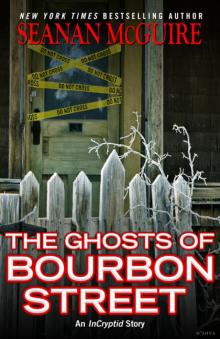 The Ghosts of Bourbon Street
The Ghosts of Bourbon Street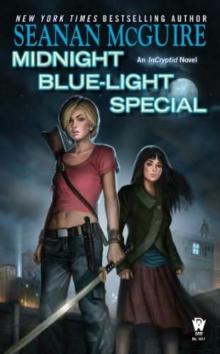 Midnight Blue-Light Special i-2
Midnight Blue-Light Special i-2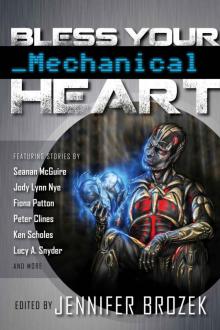 Bless Your Mechanical Heart
Bless Your Mechanical Heart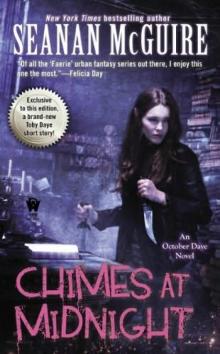 Chimes at Midnight od-7
Chimes at Midnight od-7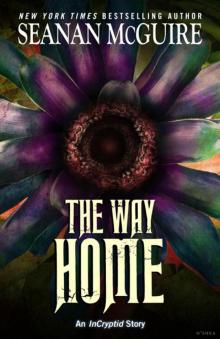 The Way Home
The Way Home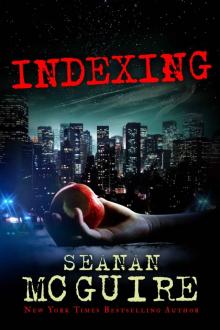 Indexing (Kindle Serial)
Indexing (Kindle Serial)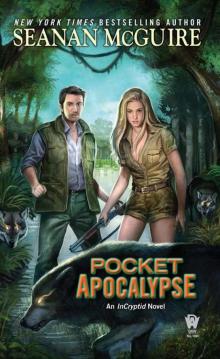 Pocket Apocalypse: InCryptid, Book Four
Pocket Apocalypse: InCryptid, Book Four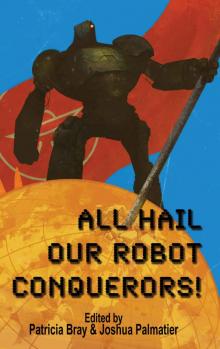 All Hail Our Robot Conquerors!
All Hail Our Robot Conquerors!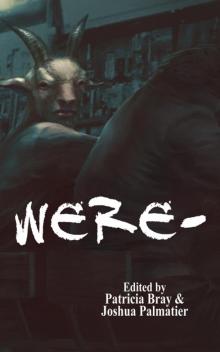 Were-
Were-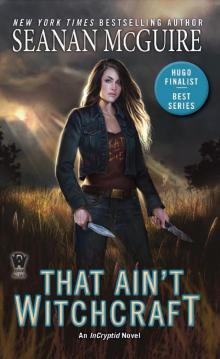 That Ain't Witchcraft (InCryptid #8)
That Ain't Witchcraft (InCryptid #8)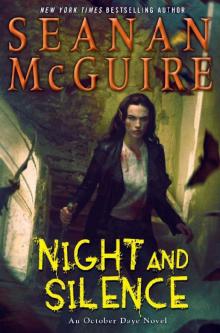 Night and Silence (October Daye)
Night and Silence (October Daye)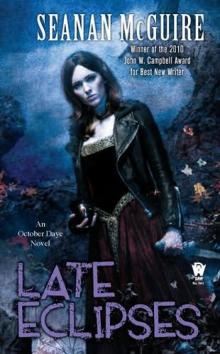 Late Eclipses od-4
Late Eclipses od-4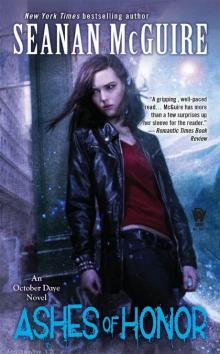 Ashes of Honor: An October Daye Novel
Ashes of Honor: An October Daye Novel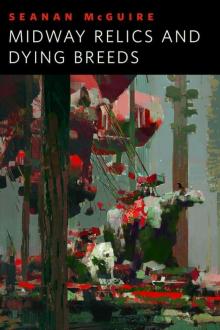 Midway Relics and Dying Breeds: A Tor.Com Original
Midway Relics and Dying Breeds: A Tor.Com Original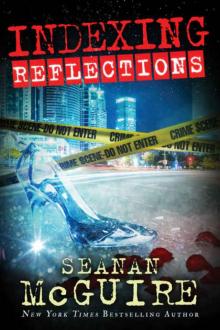 Indexing: Reflections (Kindle Serials) (Indexing Series Book 2)
Indexing: Reflections (Kindle Serials) (Indexing Series Book 2)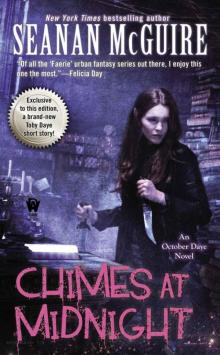 Chimes at Midnight: An October Daye Novel
Chimes at Midnight: An October Daye Novel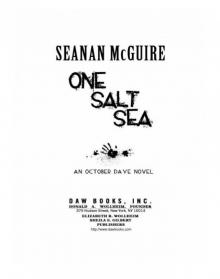 One Salt Sea: An October Daye Novel
One Salt Sea: An October Daye Novel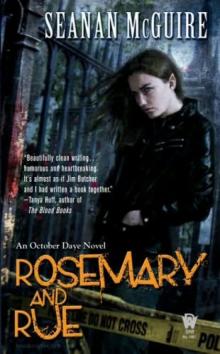 Rosemary and Rue od-1
Rosemary and Rue od-1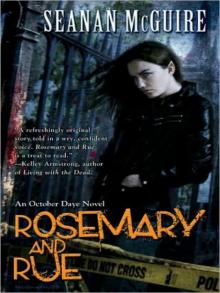 Rosemary and Rue: An October Daye Novel
Rosemary and Rue: An October Daye Novel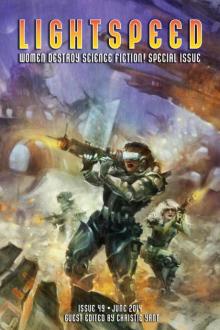 Lightspeed Magazine Issue 49
Lightspeed Magazine Issue 49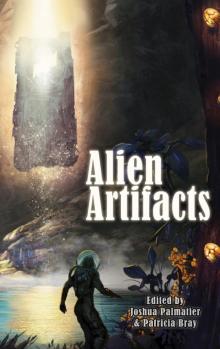 Alien Artifacts
Alien Artifacts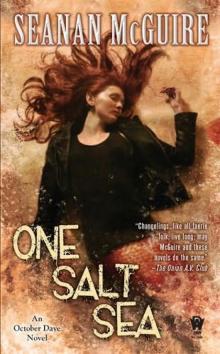 One Salt Sea od-5
One Salt Sea od-5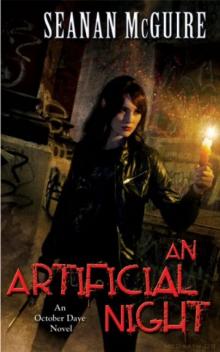 An Artificial Night od-3
An Artificial Night od-3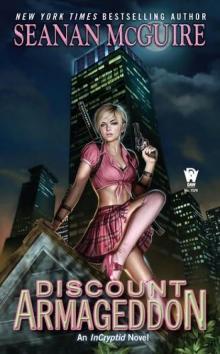 Discount Armageddon i-1
Discount Armageddon i-1